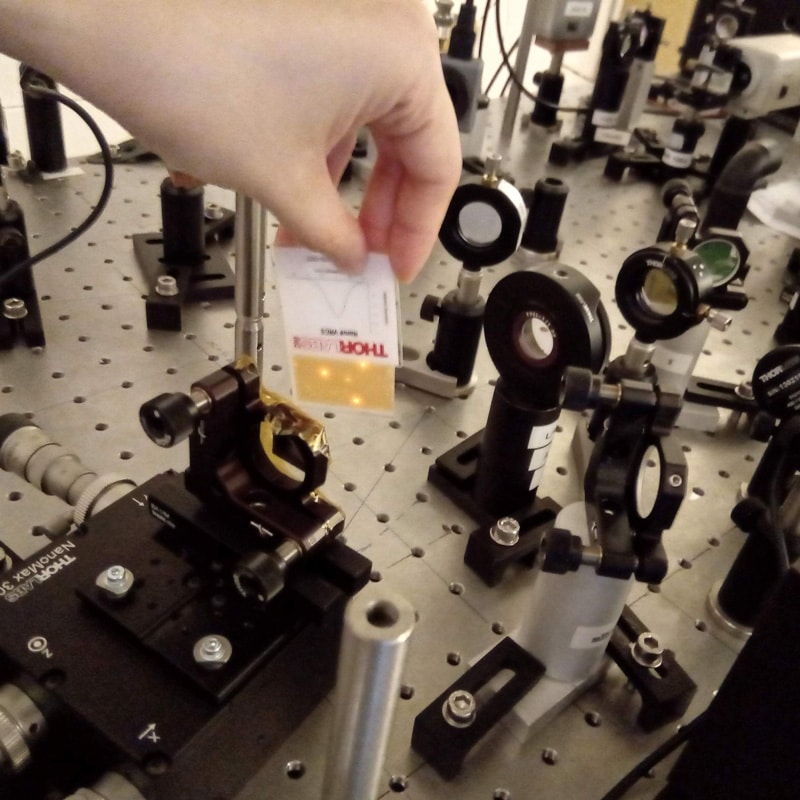Tell us a bit about yourself – what stage of your PhD are you in and what’s your project about?
My research is all about laser beams. I think lasers are pretty cool, in just 60 years they have enabled bar-code scanners, high-speed internet, CD players and driverless cars. In physics, we can use them to conduct extremely precise measurements, such as the detection of gravitational waves and accurate timekeeping. I’ve spent the last three and a half years doing a mix of laboratory work and simulations to understand the impact of defects in mirrors on the laser beams used in these experiments. I’ve developed some techniques to mitigate those defects and now I’m writing that up into my thesis.
What does a typical day or week look like for you?




What’s one thing that you’ve enjoyed the most during your PhD?
Being part of an international collaboration means there are lots of conferences and workshops. I really enjoy these, both the travel and meeting likeminded people. Also, everyone is supportive and inclusive which I think is important. I’ve also really enjoyed doing some outreach. It’s fun to meet people from completely different walks of life who are interested in science and I would recommend doing some. I got started with Pint of Science and went on to develop new apps, instruments, and talk about my work on the BBC World Service!




What’s been the most challenging part of it?
Taking academic control of my PhD was tough. It’s hard to know when to do this, too soon and you lack the knowledge to formulate well-motivated research questions and you end up wasting research time. Too late and you lose precious research time. I’m glad I got through and I now have clear motivated research questions as well as some answers. A good supervisor helps here.
Where do you see yourself 5 years after completing your PhD?
Ideally, applying for faculty positions. I love science and enjoy the other aspects of academia such as teaching, outreach and travel.

What’s one piece of advice that you’d offer students that are thinking of doing a PhD?
There is a thing called the second-year slump, although it doesn’t always occur in that year. During this period you may feel like you don’t know what your doing, alone, your supervisor has disappeared and your research is pointless/unoriginal – it is totally normal. During this time, keep touch with other PhD students, try some new hobbies and diversify your interests. Most importantly, watch out for other PhD’s going through the same process and don’t give up.
What makes your university a good place to study?

My research group at Birmingham is fantastic, very sociable and also very supportive of PhD’s which is key. The university has a postgraduate hub (Westmere), with spaces to work, workshops & training, mental health support. Also, free museums (Winterborne, Barber, Lapworth) which are great to wander around while you gather your thoughts on a topic.
What do you enjoy doing in your free time?
I’m mostly climbing, visiting historical sites, running or spending time with my fiancée and friends.
Want to know more about Aaron?
Follow him on Twitter and LinkedIn, connect with his ORCID and check out his website using the links below:

